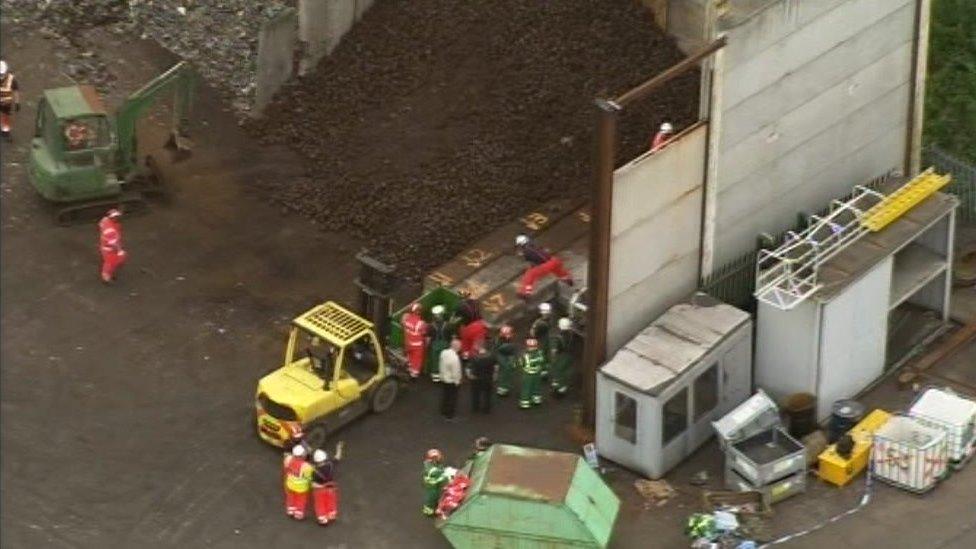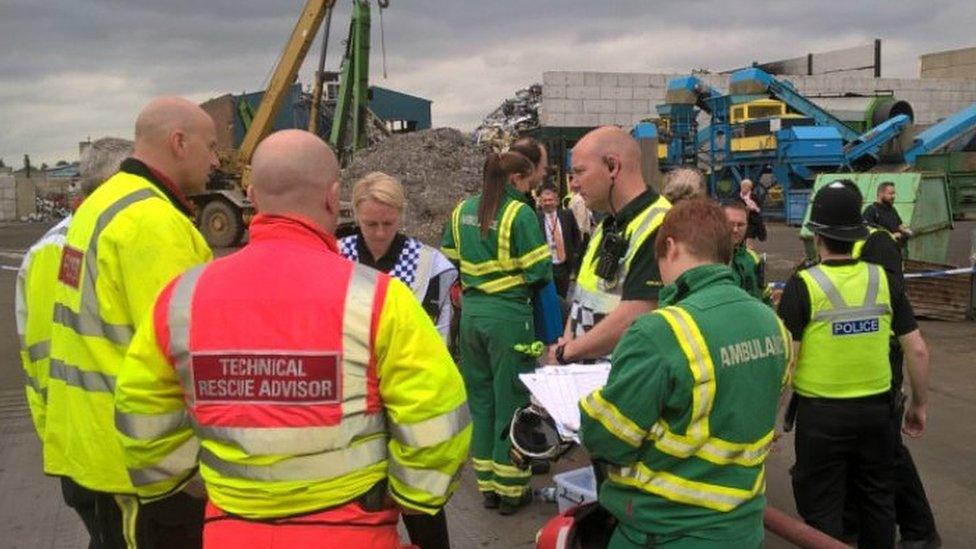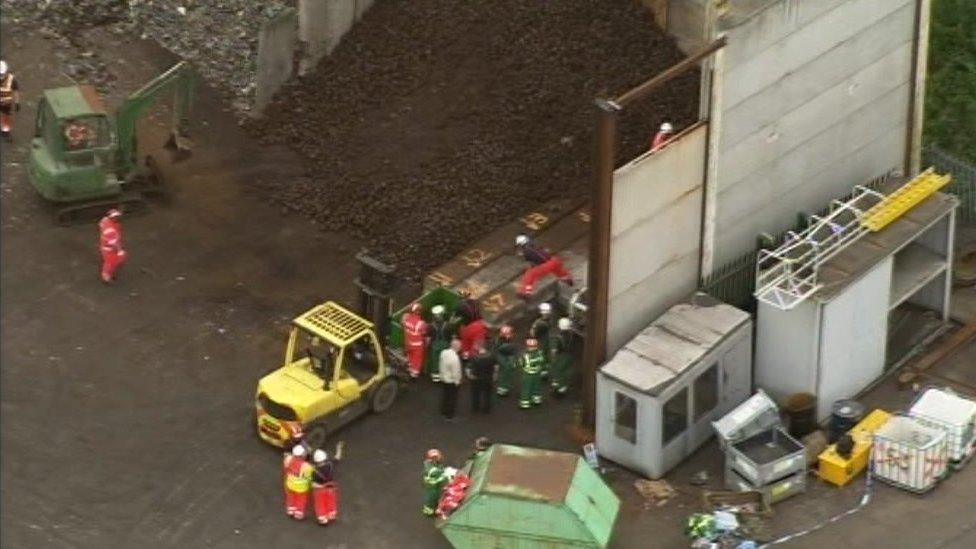Nechells scrapyard deaths: Risk of wall collapse 'common sense'
- Published

The workers clockwise from top left: Mahamadou Jagana Jagana, Almamo Kinteh Jammeh, Saibo Sumbundu Sillah, Bangally Tunkara Dukuray and Ousman Kaba Diaby
"Common sense" was enough to highlight that a scrapyard wall which killed five workers was at risk of collapsing, an inquest has heard.
The men died when the 11.8ft (3.6m) concrete partition came down on them at Hawkeswood Metal Recycling in Birmingham in July 2016.
An investigator told the city's coroner the site could have "most definitely" identified the risk of the fall.
Coroner Emma Brown has told the jury the deaths were accidents.
Directing the jury to record verdicts accordingly, Ms Brown also asked the panel to decide whether there was a "foreseeable risk" of collapse.
Alimamo Jammeh, 45, Ousmane Diaby, 39, Bangally Dukureh, 55, Saibo Sillah, 42, and Muhamadou Jagana, 49, were clearing out a scrap metal storage bay when they were killed at the plant in the Nechells area of Birmingham.
The jury heard last week that part of a stored pile of 263 tonnes of metal briquettes - in an adjacent bay backing on to the wall - had also fallen on the group when the partition gave way.

The collapse happened in July 2016
During Thursday's proceedings, Ms Brown asked Health and Safety Executive (HSE) investigator Paul Cooper whether the "risk of the wall failing" could have been spotted.
He replied "most definitely", citing "common sense" as enough.
"Overloading the wall brings about a risk of it overturning," Mr Cooper added.
Investigators said CCTV showed a "shift" in the wall's angle seconds before it collapsed, with the concrete said to have suffered "catastrophic failure".
Martyn Ostcliffe, an HSE expert with 22 years experience in the construction industry, said if a machinery shovel scraped the wall it "could have caused some vibration".
Asked by HSE lawyer Bernard Thorogood what was the main trigger of the wall's collapse, Mr Ostcliffe said: "Most likely to be some activity in [the bay in which the men were working]."

The bodies of the men were recovered several days after the wall collapsed
Addressing the jury, Ms Brown said: "You have to take it from me that the evidence shows an accident."
She requested a "short, neutral account of how the death happened", also asking the panel to decide whether there was a "foreseeable risk" of collapse and whether it had been identified or not.
She also told the jury to decide whether the risk, if not identified, caused or contributed to the deaths.
Before arriving in the UK, the men - four from The Gambia and one from Senegal - had been working in Spain where they had found it increasingly difficult to find employment.
The inquest heard they suffered "devastating blunt force injuries" and had to be identified by their fingerprints.
The jury is set to deliberate on Friday.
- Published14 November 2018

- Published13 November 2018

- Published9 November 2018

- Published8 November 2018

- Published7 November 2018
